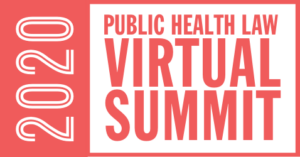
Harm Reduction and Behavioral Health in the Midst of a Pandemic
Concurrent Session Block 1: 1:15 – 2:15 p.m. ET Wednesday, September 16
Presentations
Access to Care for Individuals with Opioid Use Disorder
The United States is currently facing two severe public health emergencies: COVID-19 and the continuing epidemic of preventable opioid-related harm. While these two epidemics share some similarities, there is one key difference: while there are currently no proven approved pharmaceutical treatments for the novel coronavirus, highly effective medications to treat opioid use disorder (OUD) have existed for decades. In response to the COVID-19 epidemic, the United States Drug Enforcement Administration and other federal agencies have taken steps to temporarily remove some legal and regulatory barriers to these medications. These changes are not comprehensive and, as most are tied to the coronavirus COVID-19 emergency declaration, they are currently set to expire when that declaration is lifted. This session will highlight the potential positive impact of increased access to OUD treatment, current changes to increase access to that treatment, and recommendations for making those changes permanent.
- Corey S. Davis, JD, MSPH, Director, Harm Reduction Legal Project, Network for Public Health Law
- Amy Judd Lieberman, JD, Senior Attorney, Harm Reduction Legal Project, Network for Public Health Law
Legal Strategies for Promoting Mental Health and Wellbeing in the COVID-19 Pandemic
The inadequacy of our mental health care system, including lack of parity in coverage by public and private insurance and provider shortages, has been apparent during the response to COVID-19. The inability to meet basic needs contributes to stress, anxiety, and depression. Long-standing inequities make targeted legal action critical to support mental health in communities of color. With schools abruptly shifting to remote learning approaches, support for the mental health and well-being of students, teachers and adults in schools, and parents, is needed. This session will examine interventions aimed at public mental health, such as Psychological First Aid, the Crisis Counseling Program, suicide prevention, and violence prevention programs along with strategies to support posttraumatic growth once the pandemic has ended.
- Jill Krueger, J.D., Region Director, Network for Public Health Law—Northern Region